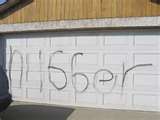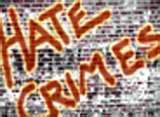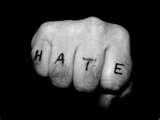In 2005, Nicholas Minucci – a White man – assaulted and robbed Glenn Moore – a Black man. Throughout the attack, Minucci repeatedly referred to Moore as a "nigger." Based on this evidence, the state prosecuted this as a hate crime. Although tragic, the details surrounding the crime were not the most interesting aspect of this case. Rather, it was the testimony proffered at the trial. Specifically, two Black men were called to testify about Minucci's use of the term "nigger." One was Gary Jenkins, a music producer. The other was Randall Kennedy, a Rhodes scholar, Harvard Law School professor, and author of the book Nigger: The Strange Career of a Troublesome Word. Essentially, both testified that the term "nigger" is no longer simply a word used to connote racial animus. Instead, the term is used in a more nuanced way throughout several segments of popular culture. This testimony was important because Minucci's attorney argued to the jury that they should not assume racial animus as his client was immersed in the hip-hop culture, where the term has an ostensibly more benign meaning(Boyd, 2006; Curry, 2006; Kilgannon, 2006).Although the jury found Minucci guilty, this case raises an interesting question: Can we assume that a White person using the term "nigger" is not expressing racial animus? Stated differently, can a White person refer to a Black as a "nigger" and not be demonstrating racial prejudice? Despite the testimony offered in this case, we argue that it cannot. As we explain in more detail below, the use of the term "nigger" by a White person is rarely, if ever, perceived as acceptable by Blacks. Further, when this term is used during the commission of a crime, it should be viewed as prima facie evidence that a hate crime has been perpetrated.
 Hate crimes are unique. For most crimes, mens rea and actus reus are the primary components that the state must prove beyond a reasonable doubt. For hate crimes, however, the state must also prove (beyond a reasonable doubt) that the defendant sought out the victim because of some cognizable characteristic (such as the victim's race). Importantly, this bias need not be the sole, or even primary, motivation for committing the crime. Rather, it only has to be part of the reason the offender chose that specific victim (McLaughlin, Malloy, Brilliant, & Lang, 2000). This requires, to some extent, that we peer into the offender's mind in an effort to gauge his motivation. Because of the nature of prejudice, and the more severe consequences of committing a hate crime (i.e., sentence enhancements), it is unlikely that a defendant in such a case will readily admit to any racial animus. Even when the defendant purposely chose the victim because he was Black, Jewish, or gay, a confession substantiating this fact is not likely to be forthcoming. Instead, such motivation is likely hidden from authorities, who must then gather evidence that speaks to this issue. Trying to see that which is hidden can be a dangerous game, however, and one that requires some restraint.
Hate crimes are unique. For most crimes, mens rea and actus reus are the primary components that the state must prove beyond a reasonable doubt. For hate crimes, however, the state must also prove (beyond a reasonable doubt) that the defendant sought out the victim because of some cognizable characteristic (such as the victim's race). Importantly, this bias need not be the sole, or even primary, motivation for committing the crime. Rather, it only has to be part of the reason the offender chose that specific victim (McLaughlin, Malloy, Brilliant, & Lang, 2000). This requires, to some extent, that we peer into the offender's mind in an effort to gauge his motivation. Because of the nature of prejudice, and the more severe consequences of committing a hate crime (i.e., sentence enhancements), it is unlikely that a defendant in such a case will readily admit to any racial animus. Even when the defendant purposely chose the victim because he was Black, Jewish, or gay, a confession substantiating this fact is not likely to be forthcoming. Instead, such motivation is likely hidden from authorities, who must then gather evidence that speaks to this issue. Trying to see that which is hidden can be a dangerous game, however, and one that requires some restraint.
Instead of assuming motivation based on simple facts (e.g., a White perpetrator commits a crime against a Black person), or drawing tenuous conclusions, the best evidence of hate motivation for a crime is that which can be seen or heard. Physical evidence, such as swastikas, a burning cross, or some other easily discernable hate symbol can be used as evidence of hate motivation. We argue, however, that what an offender says during the commission of a crime can be equally revealing and probative. This is particularly true in cases involving a White defendant who victimizes a Black person, and refers to the victim as a "nigger."
One of the most evocative words in the English language is "nigger." Yet, the word (or more precisely, a variation of it, such as "nigga") is widely used among some segments of the Black community. Moreover, the term is peppered throughout different types of popular culture, such as comedy routines, rap music lyrics, and spoken word. Such use may lead some to believe the term "nigger" has lost much of its power, and no longer carries with it the same degree of negativity. Further, some Whites, especially those who are fans of popular culture where the term may be employed, may mistakenly believe they can use the term "nigger" or "nigga" in much the same way as Blacks. This was precisely the rationale offered in the Minucci case. Yet, there is overwhelming evidence that Whites (and other non-Black races and ethnicities) are expressly forbidden from co-opting the use of this term, even when there is no malicious intent. To the contrary, we argue that the use of the term "nigger" by a White person (in virtually any instance) is inherently malevolent and unacceptable.
The rare situation in which a White person might be able to use the word "nigger" around Blacks and not be deemed racially prejudiced is when he or she has Black friends who are tolerant of their usage of the word around those particular Black friends. However, it is almost unheard of for a Black person to tolerate a White person's usage of the word more broadly. This position can be bolstered by empirically exploring who uses (or more aptly, who does not use) the term "nigger." To assess this question, we examined – via quantitative analysis – rap music lyrics of both Black and White artists. If there is any segment of the White population who might be given some leeway in artistic expression and use of the term "nigger," it would arguably be rap artists. Such individuals are deeply immersed in the hip-hop culture, where the term is often used by other (Black) artists. Despite this familiarity and immersion, we found that White rappers rarely use the term "nigger," and significantly less than Black artists. These findings were bolstered by our content analyses of similar components of Black popular culture (e.g., comedy, the spoken word), which yielded substantively similar patterns. In no instance could we find a venue in which Whites routinely had license to use the term "nigger." If the term can be used by Whites in a non-prejudicial manner, as some have argued, we would not expect this pattern of findings.
Thus, when a White uses the term "nigger" (or "nigga"), what are we to make of it? It may be an instance of ignorance. In some contexts (such as peer relationships described above), this will be quickly corrected (although there may remain a rift between a user and peers). But in the context of a criminal event, such innocuous explanations are less compelling. A criminal event is an inherently arousing situation, for both the victim and the offender. Such ostensibly harmless use of a charged term is not likely. Instead, we argue that using this term is evidence of racial animus. It may be the case that the defendant would be highly unlikely to use this term in most instances. However, when aroused in the context of a criminal event, his guard may be inadvertently let down. That is, his usual cognitive filters that would prevent him from uttering the term are circumvented and it "slips out."
 There is a voluminous literature that provides a theoretical and empirical basis to understand what might occur during the course of a hate crime, and why using the term "nigger" constitutes evidence of a hate crime. The literature on implicit racial biases notes that many Whites harbor anti-Black sentiments, much of which lies beyond consciousness (Greenwald & Krieger, 2006).Thus, while explicit racial bias has declined in recent eras, there remain deep-seated attitudes among Whites that are anti- Black. Further, this literature reveals that under normal circumstances, such sentiments remain hidden (perhaps even from those who hold such beliefs) (Greenwald & Banaji, 1995; Nosek, Greenwald, & Banaji, 2006).That is, Whites do not openly express or admit to such biases, and may be fully unaware of the possession of such attitudes. Perhaps the reason for this is that it is no longer socially accepted to hold such biases, and through effortful cognitive processing, Whites are able to interrupt and contravene when such thoughts or beliefs occur. However, implicit biases are much more likely to be revealed when cognitive demands preclude such effortful processing (Friese, Bluemke, & Waenke, 2007). Furthermore, implicit anti-Black bias predicts self-reported racial discrimination – including verbal slurs and physical harm to others (Rudman & Ashmore, 2007).
There is a voluminous literature that provides a theoretical and empirical basis to understand what might occur during the course of a hate crime, and why using the term "nigger" constitutes evidence of a hate crime. The literature on implicit racial biases notes that many Whites harbor anti-Black sentiments, much of which lies beyond consciousness (Greenwald & Krieger, 2006).Thus, while explicit racial bias has declined in recent eras, there remain deep-seated attitudes among Whites that are anti- Black. Further, this literature reveals that under normal circumstances, such sentiments remain hidden (perhaps even from those who hold such beliefs) (Greenwald & Banaji, 1995; Nosek, Greenwald, & Banaji, 2006).That is, Whites do not openly express or admit to such biases, and may be fully unaware of the possession of such attitudes. Perhaps the reason for this is that it is no longer socially accepted to hold such biases, and through effortful cognitive processing, Whites are able to interrupt and contravene when such thoughts or beliefs occur. However, implicit biases are much more likely to be revealed when cognitive demands preclude such effortful processing (Friese, Bluemke, & Waenke, 2007). Furthermore, implicit anti-Black bias predicts self-reported racial discrimination – including verbal slurs and physical harm to others (Rudman & Ashmore, 2007).
As mentioned above, a criminal event is inherently arousing, and it seems reasonable to assume that conscious, controlled, effortful processing is compromised considerably. It is precisely under these circumstances that an individual's implicit biases may be revealed. That is, despite any potential motivation to the contrary, a person may simply be cognitively incapable of engaging in more deliberate efforts to keep such biases from surfacing.
So what are we to draw from this in the context of criminal cases? For the state, any evidence that indicates a racial slur is uttered has probative value regarding the racial motivation of the crime. Although the defendant may claim their use of the word was not malicious, as in the Minucci case, there is simply no compelling evidence that Whites can, or do, use the term "nigger" so casually. Therefore, defense attorneys should avoid employing such a strategy.
Of course, the jury is ultimately responsible for adjudicating whether or not a hate crime has occurred. How might jurors perceive a White defendant who uses the term "nigger" – will they see the use of that term as evidence a hate crime has been perpetrated? Are they likely to accept an argument that the term has lost much of its inflammatory power? Unfortunately, there is little empirical evidence that directly addresses this question. However, some speculation and extrapolation from existing lines of research provide insight. Although there are no studies that address how Black jurors might respond to the use of a White defendant's use of the term "nigger," it seems reasonable to conclude that such jurors would be incensed. Moreover, Black jurors will not be inclined to believe that a White person can use the term in a non-prejudicial manner, and will therefore likely adjudicate guilty on the hate crime charge.
Among White jurors, we would expect similar patterns. On a broad level, Sam Sommers has conducted numerous investigations that explore what factors influence White jurors' perceptions of Black defendants (Sommers & Adekanbi, 2008). He has found that when the circumstances surrounding the criminal event are racially-charged, White jurors seem to make extra efforts at appearing non-prejudicial. That is, under racially salient conditions, White jurors make every attempt to not appear that they are discriminating against the Black defendant. In fact, under such conditions, White jurors convict White and Black defendants at the same rate. Conversely, when the racial salience of a crime is less pronounced (or non-existent), White jurors demonstrate more discrimination against Black defendants (cf, Rachlinski, Johnson, Wistrich, & Guthriett, 2009). Obviously, a criminal event that is labeled as a hate crime is by definition racially salient. Unfortunately, no study to date has explored what factors influence White (or Black) jurors in deciding guilt on a hate crime charge.
There are, however, some studies that explore how mock jurors perceive cases that are implied or explicitly defined as hate crimes. Most of these studies have relied on primarily White samples. In general, hate crimes that correspond to stereotypical notions of what a hate crime is (i.e., a White perpetrator, a Black victim) are more likely to lead to guilty verdicts and longer sentence recommendations than those crimes that are at odds with notions of what constitutes a hate crime (e.g., a Black perpetrator, a White victim) (Marcus-Newhall, Blake, & Baumann, 2002). These studies reveal that jurors, particularly White jurors, may be especially vigilant in not "going easy" on a White defendant who commits a hate crime. Such evidence is consistent with Sommers' research on racial salience. We might also consider such findings in light of the black sheep hypothesis, which suggests that jurors of the same race as the defendant are harsher when that defendant has committed a particularly heinous crime (Kerr, Hymes, Anderson, & Weathers, 1995). The logic is that same race jurors want to distance themselves from the defendant, and this manifests itself in more guilty verdicts. However, there is no evidence that White jurors are harsher on White defendants in hate crimes (or other racially salient crimes). Instead, White jurors are equally likely to convict White and Black defendants under such circumstances. Yet, both the phenomenon of racial salience and the black sheep hypothesis suggest that White jurors will be unlikely to demonstrate any preferential treatment toward a White defendant who is accused of committing a hate crime (Sommers & Adekanbi, 2008).
 Despite the defense strategy employed in the Minucci case, and the testimony offered by two prominent Blacks at trial, the empirical evidence fails to lend credibility to the notion that Whites can use the term "nigger" in an innocuous manner. Moreover, the use of that term, particularly in the context of a crime, is revealing about a defendant's underlying prejudiced beliefs. As such, a White who refers to a person as "nigger" during the perpetration of a crime has engaged in a hate crime.
Despite the defense strategy employed in the Minucci case, and the testimony offered by two prominent Blacks at trial, the empirical evidence fails to lend credibility to the notion that Whites can use the term "nigger" in an innocuous manner. Moreover, the use of that term, particularly in the context of a crime, is revealing about a defendant's underlying prejudiced beliefs. As such, a White who refers to a person as "nigger" during the perpetration of a crime has engaged in a hate crime.
Gregory S. Parks, J.D., Ph.D. (gsp28@cornell.edu) is a judicial law clerk in the Washington, D.C. area. His books include Critical Race Realism: Intersections of Psychology, Race, and Law (with Shayne Jones & W. Jonathan Cardi, The New Press 2008), The Obamas and a (Post) Racial America (with Matthew W. Hughey, Oxford University Press forthcoming), and a book on implicit (unconscious) race bias and the law (with Jeffrey J. Rachlinski). Read more about his work at www.gregoryparks.net.
Shayne Jones, Ph.D. [sjones@cas.usf.edu] is an Assistant Professor of Criminology at the University of South Florida. His research interests are in the areas legal decision-making and the relationship between personality and antisocial behavior. For additional information, please visit Dr. Jones' webpage at http://criminology.usf.edu/faculty/sjones/.
Authors' Note: This article is an abridged version of Parks, G. S., & Jones, S. (2008). "Nigger": A critical race realist analysis of the n-word within hate crimes law. Journal of Criminal Law and Criminology, 98, 1305-1352.
References
Boyd, H. (2006, June 15). Minucci guilty of hate crime. New York Amsterdam News, p. 10.
Curry, G. E. (2006, June 23). Randall Kennedy: Negro please. Atlanta Daily World, p. 5.
Friese, F., Bluemke, M., & Waenke, M. (2007). Predicting voter behavior with implicit attitude measures: The 2002 German parliamentary election. Experimental Psychology, 54, 247-255.
Greenwald, A, G., & Banaji, M. R. (1995). Implicit social cognition: Attitudes, self-esteem, and stereotypes. Psychological Review, 102, 4-27.
Greenwald, A. G., & Krieger, L. H. (2006). Implicit bias: Scientific foundations. California Law Review, 94, 945-967.
Kerr, N. L., Hymes, R. W., Anderson, A. B., & Weathers, J. E. (1995). Defendant-juror similarity and mock juror judgments. Law and Human Behavior, 19, 545-567.
Kilgannon, C. (2006, June 8). Epithet 'has many meanings,' a Harvard professor testifies. New York Times, p. 1.
McLaughlin, K. A., Malloy, S. M., Brilliant, K. J., & Lang, C. (2000). Responding to hate crime: A multidisciplinary curriculum for law enforcement and victim assistance professionals. Newton, MA: National Center for Hate Crime Prevention, Education Development Center.
Marcus-Newhall, A., Blake, L. P., & Baumann, J. (2002). Perceptions of hate crime perpetrators and victims as influenced by race, political orientation, and peer group. American Behavioral Scientist, 46, 108-135.
Nosek, B. A., Greenwald, A. G., & Banaji, M. R. (2006). The implicit association test at age 7: A methodological and conceptual review. In J. A. Bargh (Ed.), Social Psychology and the Unconscious: The Automaticity of Higher Mental Processes (pp. 265 – 292). Hove, UK: Psychology Press.
Rachlinski, J., Johnson, S. L., Wistrich, A. J., & Guthriett, C. (2009). Does unconscious racial bias affect trial judges? Notre Dame Law Review, 84, 1195-1246.
Sommers, S. R, & Adekanbi, O. O. (2008). Race and juries: An experimental psychological perspective. In G. S. Parks, S. Jones, & W. J. Cardi (Eds.), Critical race realism: Intersections of psychology, race, and law (pp. 78-93). New York: The New Press.
We asked two experienced trial consultants to respond to Parks & Jones article on hate crimes and racial slurs. Andy Sheldon & George Kich share their reactions on the following pages.
Response to Parks/Jones article By Andrew M. Sheldon
Andrew Sheldon, JD, PhD (Andy@SheldonSinrich.com) began trial consulting in 1984 after careers as a lawyer and as a psychotherapist. His involvement in the retrials of 7 civil rights murder trials led to his continued study of racial issues in litigation of all kinds.
Dr. Parks and Dr. Jones argue that the use of the N word (as we have come to call it) by a perpetrator during a crime should be viewed as prima facie evidence that the crime is a hate crime. They support their argument by noting that, when trying to determine if a crime fits the "hate crime" category, courts will consider things like hate symbols (e.g., Swastika's painted on the victim's house, burning crosses) so why not include offensive, hateful words used by the perpetrator. As they say, "we argue that using this term is evidence of racial animus."
The reason the authors propose that using the N word should become prima facie evidence of racial animus in hate crime prosecutions is that "it is unlikely that a defendant in such a case will readily admit to any racial animus."
The alternative, I guess, is to allow the words used by the perp during the commission of the crime to be interpreted by the jury in the broader context of the facts of the crime without a priori any special value being ascribed to the words, and without an instruction from the court that use of the N word by the perp is to be taken as some proof of a hate crime that will have to be rebutted by the defense.
Their proposal seems like a common sense notion. Why else would we call a hate crime a "hate" crime if it were not accompanied by the add-ons (like hateful language, for example) that demonstrate the perpetrator's bigotry and racist motivation? Yet I wonder and raise the question whether we will have helped the jury do their duty by lifting the N word out of the general hate vocabulary and placing it in a special category? The law generally does not do the same for the B word in hate crimes against women or the J word in hate crimes against Jews (etc.). Is it not sufficient that the jury is able to consider the language used by the victimizer as some evidence of his/her intent in the context of their local usages rather than being told that it is prima facie evidence? Maybe it is a fine legal point to be debated and discussed by experts in law schools and legislative committees.
 The larger question addressed by Dr. Parks and Dr. Jones is: "Can we assume that a White person using the term "nigger" is not expressing racial animus? Stated differently, can a White person refer to a Black as a "nigger" and not be demonstrating racial prejudice?" Whether or not the N word (and all the other truly ugly words used by hate-filled people in their rage against others) should or should not be granted this new legal status, I really appreciate the authors asking us to think about the use of language in racism and bigotry. This and other issues concerning prejudice and racial hatred are issues too often left under the rug in the popular literature of trial consulting.
The larger question addressed by Dr. Parks and Dr. Jones is: "Can we assume that a White person using the term "nigger" is not expressing racial animus? Stated differently, can a White person refer to a Black as a "nigger" and not be demonstrating racial prejudice?" Whether or not the N word (and all the other truly ugly words used by hate-filled people in their rage against others) should or should not be granted this new legal status, I really appreciate the authors asking us to think about the use of language in racism and bigotry. This and other issues concerning prejudice and racial hatred are issues too often left under the rug in the popular literature of trial consulting.
Comment on: Hate Crimes and Racial Slurs
by George Kitahara Kich
George Kitahara Kich, Ph.D. (george@bonoradandrea.com) is a trial consultant and partner at Bonora D'Andrea LLC in San Francisco, focusing on witness preparation, theme development and jury selection. He consults on civil and white-collar criminal cases nationwide.
Probing the mindset of anyone is a difficult and never foolproof task. As attorneys and trial consultants, we struggle to do just that during jury selection with sometimes minimal information. Trying to decipher hate motivation in a crime where racial difference, racial animus and use of a racial slur exist seems to pose almost impossible, complex legal challenges. If I were a juror, I know I would have to follow specific jury instructions of legal definitions, evidence and proof1. In this comment, I can address two things, of many, that came to mind when I read this excellent and stimulating article by Drs. Parks and Jones. First, are racial slurs always bad? Second, who, if anyone, "owns" a word?
For me, the answers are simple: First, even in this post-modern age of semiotics where sometimes a word is not even itself, I believe that racial slurs are always bad and worse if used in a physically-violent context. Implicit bias research is compelling in showing the depth of the connections between covert animosity and violent behavior. But, there is no doubt in my mind that racist motivation, animus, victimization and identification with and as the oppressor are involved in a violent act where racial slurs are used. It is simple. I agree with the authors on this point, that "when this term is used during the commission of a crime. . . . a hate crime has been perpetrated".
I also believe that the oppressed own the words that are used to oppress them. One way I came to that conclusion was when I presented diversity trainings in my prior career. I used to conduct a highly-charged in- and out-group experience called, "Words I Never Want to Hear Again." The exercise could be used with any aspect of identity and social interaction that involved power2. In the context of large group training, smaller same-race/ethnicity groups would be formed and the participants in each group would talk about the words and phrases they had heard that had been used against them. Each separate group would bring these words and phrases back to the larger group, speaking to everyone and using the word in the sentence, "I never want to hear ___ again, not from you, and not from anyone." Sometimes, it would just be said with little apparent emotion. Other times it would be shouted angrily or with tears. Often there would be a story or an experience that would amplify what was being said. The personal stories made the experiences more meaningful for everyone and increased a sense of relatedness among the participants.
 I know that oppressed groups can sometimes re-appropriate words and their meanings as a way to show power over that word, to cleanse the historically oppressive use by a majority, and to re-claim it as new. Does that mean this particular racial slur can or should ever be resurrected? Maybe some words just cannot find a re-empowered use, just cannot be repurposed from their violent and dehumanizing past.
I know that oppressed groups can sometimes re-appropriate words and their meanings as a way to show power over that word, to cleanse the historically oppressive use by a majority, and to re-claim it as new. Does that mean this particular racial slur can or should ever be resurrected? Maybe some words just cannot find a re-empowered use, just cannot be repurposed from their violent and dehumanizing past.
I am cautious when I hear the defense in this case say that such a racist slur, as it was put in the article, was being "used in a more nuanced way." It is hard to imagine that an assault with a baseball bat while using this word was "nuanced" in any way. Any attempt to understand "nuance" about that racial slur must be framed in the context of our post-1984 age of meta-communication in which we have a post-modern racism, where brutal and blatant racism is legislated against and is no longer socially-acceptable (in most places anyway), but the oppressive force of institutional, covert and duplicitous "nuanced" racism still exists.
I appreciate the two scholars who wrote this short yet thought-provoking article. I also look forward to reading their longer article on this topic3, as well as Randall Kennedy's book about the "troublesome word." His other book, Race, Crime and Law, has been enlightening to me in the past.
Thanks to the Internet, I like that we can cut to the chase about how the general population might think about a topic. I go straight to YouTube for a few straightforward pronouncements by the intentional and often unintentional truth-sayers of our current era: Editor's warning: These videos contain language which may be offensive.
Chris Rock tells us all when a White person could actually use that word: "…between 4:30 and 4:49 am…" from Kill the Messenger shows, South Africa, London and New York. http://www.youtube.com/watch?v=63M34s8afbo
News story: Teacher used it with Black student and tries to defend its use.
http://www.youtube.com/watch?v=VY16_nKORb8&feature=related
Interview with Chris Rock. Who says: "I am the wrong guy to explain…. It is the nitroglycerin of words, and in the wrong hands it can hurt." http://www.youtube.com/watch?v=vIsfjS5KLCE
End Notes
1 For the NY law about hate crimes; also, Google the Nicholas "Fat Nick" Minucci case in Howard Beach for complexities about the facts of his case:
http://criminaljustice.state.ny.us/legalservices/ch107_hate_crimes_2000.htm
2 People who have been historically oppressed, sometimes called "target groups," would meet separately. The people with privilege and power who personally and historically were not members of the target racial minority can be called a "non-target group" about that particular dimension. A person may have memberships in different kinds of target and non-target groups depending on various often co-existing contexts. Race, class, gender, education, economics, age, etc., can be areas in which people divide themselves into targeted or non-targeted groups. Some groupings have more weight or charge associated with them.
3 http://works.bepress.com/cgi/viewcontent.cgi?article=1000&context=shayne_jones
Citation for this article: The Jury Expert, 2009, 21(5), 16-23.

Karen Franklin has done a blog post on this article: Karen's blog post
Like Andy Sheldon, I find this a no-brainer (if I beat you with a bat and call you a "nigger" that's a hate crime–excuse me, but how is that "nuanced"?). Like George Kitahara Kich, I am inordinately fond of Chris Rock.
I think many of us are afraid to talk about the issues raised in this article and we need to not be afraid. In a time in this country when a "national conversation" can mean name-calling, shouting, and uninformed fervor from both sides of the aisle–the ability to talk about race and racism and hate crimes of all ilks is an important skill to cultivate.
When we are telling stories about (sometimes) horrible things, we need to be unafraid to face controversy and figure out how a story is 'best told' in order to be 'best heard'.
David Badertscher has done a blog post on this article: David's blog post
It is infuriating when any person calls me a nigger no matter if they are white or whatever other race if their intent is to infuriate, belittle, provoke, degrade or insult me. I believe that it should be punishable by law when a person uses the word nigger to provoke another person and the punishment should be equal to the severity of the events. Freedom of speech is a good thing, but if a person’s free speech is offensive and directed towards a person, that should be considered as a direct offense or an attempt to provoke an angry reaction (i.e. Come on punk, hit me now!). In that sense, disrespect is very obvious and many people would probably react negatively towards the person who utters such a sentence; well, the word nigger used similarly in a sentence is much the same and causes anger or some unfavorable reaction (some temporary loss of control by the intended receiver)
If people will simply sum the use of the word nigger up to be a first amendment right then how do we come about the term spousal abuse of verbal abuse? If you hate black people then that is one thing, but if you express that hatred towards them then that is an attempt to harm them in some way. That attempt should be illegal just as spousal abuse or verbal abusiveness. I believe that the one’s who are protecting their right to use this term are using the first amendment as some kind of invencible vehicle (this loophole right to say something/anything) to propagate their evil without having to face the consequences of their lack of decency or respect for others.
If my child called me a nigger I would have to punish them for it — would you? OK. So, some things are wrong even if those things are “just” words.
@tygrlord it’s a hate crime. https://t.co/9B6Xy6UTaR